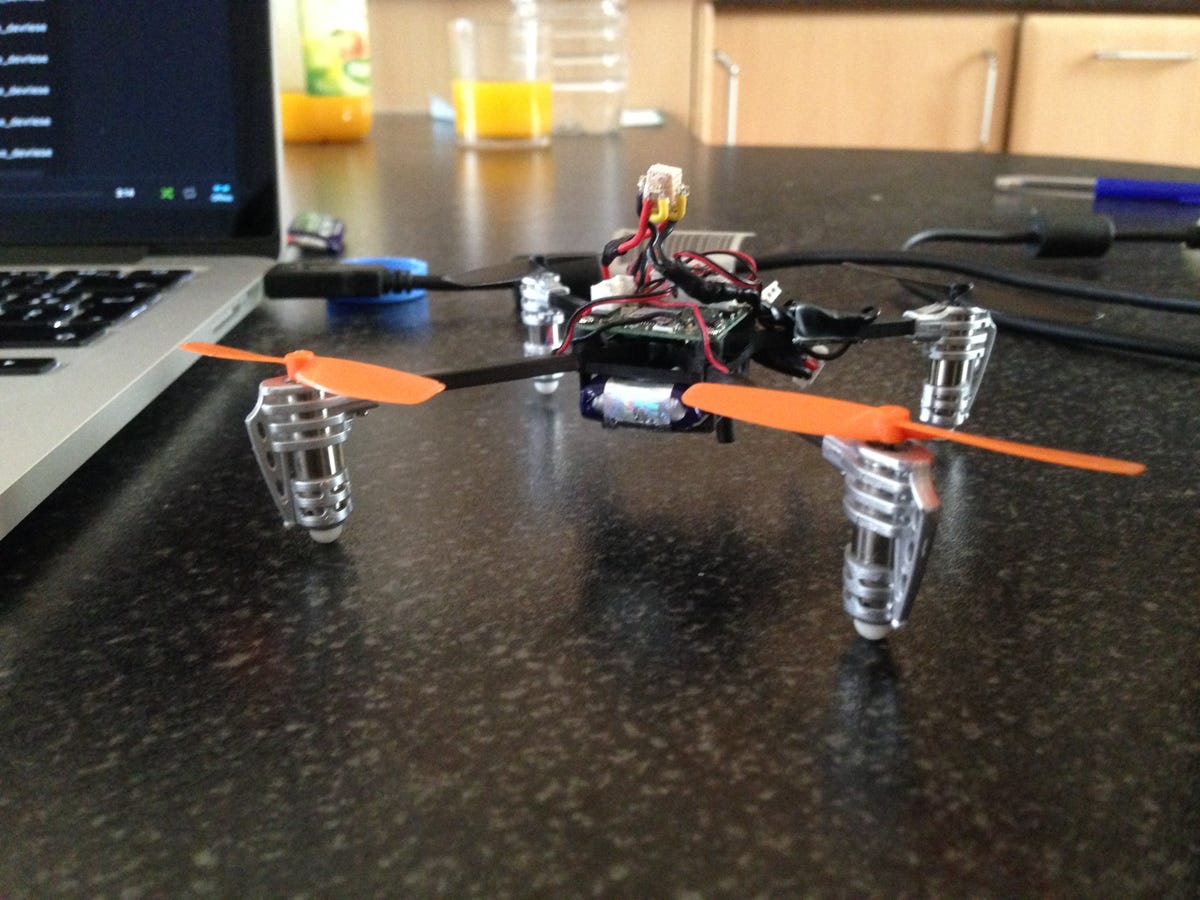Bold hardware hacks vie for a trip to space (pictures)
The Hackaday Prize is offering up a trip to space for someone who creates the next world-changing piece of open-source hardware.

"Star Wars" training droid
The Hackaday Prize aims to reward the next great piece of open-source hardware with a trip to space. Dozens of concepts and other entries -- from the serious and practical to the wacky and wild -- are already pouring in.
One team designed this training droid based on the ones Luke Skywalker jousts with in "Star Wars." This particular version uses a quadcopter that interacts with a Wiimote rather than a light saber.
The hand of Zeus
Like Benjamin Franklin's wildest dreams, a group of Texas A&M students aim to harness the power of lightning by launching a copper wire into stormy skies in the hope of inducing a lightning strike. It's never been more important for these college students to wear rubbers.
Raspberry eye
If the past few years have taught us much, it's that it may not be possible to look cool in Google Glass. So, why not just embrace the full-blown nerdy look of wearing a computer on your head and save a few hundred bucks off the $1,500 price tag of Glass? Roman Rolinsky's Hackaday entry used an inexpensive Raspberry Pi, a credit card-size mini computer, and some other basic hardware to make his own Glass competitor, but for only about $100 worth of supplies.

EV Commuter Longboard
Behold the love child of Tony Hawk and Elon Musk that should have been. It might not be as glorious as the long-awaited hoverboard, but this electric longboard promises to propel its rider around at speeds up to 20 miles per hour with minimal effort.
Food replicator
Ok, so it's not quite the replicator aboard the U.S.S. Enterprise, but it is a computerized garden that the designers claim can grow anything, either in your garage or aboard a probe in deep space.
Project Jarvis
Home automation has been promised since before "The Jetsons." Project Jarvis proposes to tap into the power of basic artificial intelligence and Google's Android mobile operating system to provide a smart-home system that's also open source and as little as $200.
'Demolition Man' censors
While it's hard to imagine why, this project seeks to actually replicate the verbal morality monitors that would issue citations to potty-mouths of the future in the classic Sly/Snipes flick "Demolition Man." No word on the system's opinion of "frack."
Voice Controlled Raspberry Pi
Siri, Google Now, and Scarlett Johansson's character in "Her" aren't the only operating systems worth talking to. This Hackaday project has created a way to talk to a Raspberry Pi. When it gets upset though, it doesn't always get along with the "Demolition Man" verbal morality monitor project. Good thing the grand prize trip to space in this competition can't be shared.

